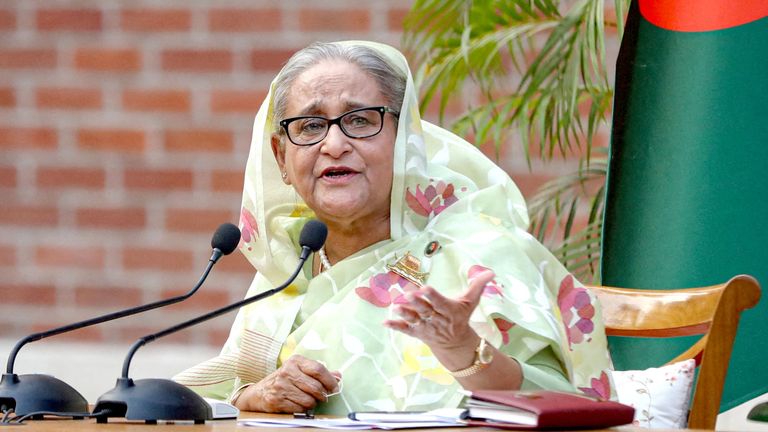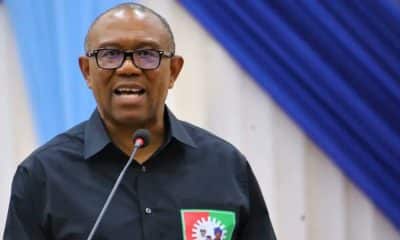World News
Bangladesh Court Issues Arrest Warrant For Exiled Former Leader Sheikh Hasina

A court in Bangladesh issued an arrest warrant on Thursday for former Prime Minister Sheikh Hasina, who fled to India in August following her ouster during a student-led uprising.
Chief prosecutor Mohammad Tajul Islam described the day as “remarkable,” while family members of those who died in the protests expressed anticipation for justice.
During her 15-year tenure, Hasina faced accusations of human rights abuses, including the detention and extrajudicial killings of political opponents.
“The court has ordered the arrest of former prime minister Sheikh Hasina, and to produce her in court on November 18,” Islam, chief prosecutor of Bangladesh’s International Crimes Tribunal (ICT), told reporters.
“Sheikh Hasina was at the helm of those who committed massacres, killings and crimes against humanity in July to August,” Islam added.
The court also issued warrants for 45 others, including Obaidul Quader, former Awami League general secretary, while numerous allies of Hasina’s government have been detained, accused of involvement in a police crackdown that led to over 700 deaths during the uprising.
Many senior officials in Hasina’s government, including former cabinet members, were also purged from positions in the judiciary and central bank.
Since her escape, Hasina has remained unseen, with her last known location being a military airbase near New Delhi.
Her presence in India, a former ally, has stirred tensions with Bangladesh’s interim government, which has revoked her diplomatic passport.
Although the two countries share an extradition treaty, its clause allows for refusals on cases deemed “political,” potentially complicating her return.
Family members of Sajib Sarkar, a medic who was killed during the July protests against Sheikh Hasina, were present in court.
His sister, Sumaiya Sarkar, voiced a strong desire for justice, urging the government to act quickly to bring Hasina back to Bangladesh to be held accountable.
“We want the government to take the initiative to bring back the former prime minister as soon as possible and hold her accountable. We are looking forward to a fair trial,” Sumaiya Sarkar, told AFP.
Hasina’s government established the International Crimes Tribunal (ICT) in 2010 to investigate atrocities from the 1971 independence war.
However, critics, including the United Nations and rights groups, argue the tribunal often served Hasina’s political interests by targeting her opponents. The ICT is now investigating multiple cases of alleged “mass murder” orchestrated by Hasina during the protests.
Following Hasina’s removal, Nobel Peace Prize laureate Muhammad Yunus, an 84-year-old pioneer in microfinance, has taken over as the interim leader, tasked with the formidable challenge of restoring democratic institutions in Bangladesh.
He described the current state of public administration and justice as “completely broken down” and stressed the need for a comprehensive overhaul to prevent the country from reverting to autocratic rule in the future.










